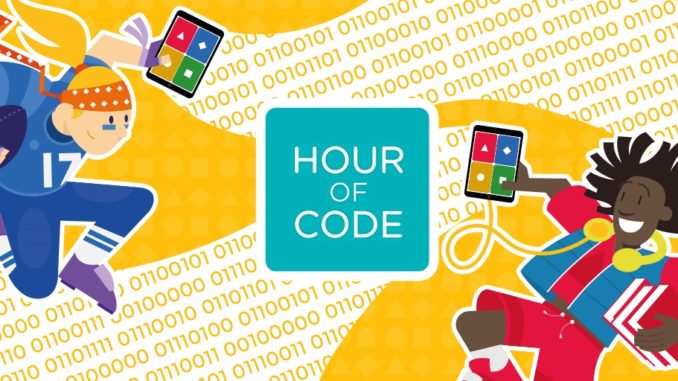
With technology changing every industry on the planet, computing knowledge has become part of a well-rounded skill set. But fewer than half of all schools teach computer science!
The good news is, we’re on our way to changing this. If you heard about the Hour of Code last year, you might know it made history. One hundred million students have now discovered how accessible and fun computer science can be by doing just one Hour of Code.
What Most Schools Don’t Teach
“The Hour of Code is designed to demystify code and show that computer science is not rocket science – anybody can learn the basics,” said Hadi Partovi, founder and CEO of Code.org. “Over 100 million students worldwide have tried an Hour of Code. The demand for relevant 21st-century computer science education crosses all borders and knows no boundaries.”
The Hour of Code is a one-hour introduction to computer science, designed to demystify code and show that anybody can learn the basics. Learn more about the world of computing at www.HourOfCode.com or www.culvercoding.com and try an hour yourself! And, if you use social media, use the hashtags #culvercoding and #culverpride and show the CCUSD community your coding skills!


One needs to ask yourself, “Who needs code writers?” The answer: Most industries now rely on written code–in some way or another. They are looking to public school system to find those few who that have a special knack for writing computer code. But for most who learn basic code, they will probably end up being employed as entering code and its variants for some large company. And, as always, if there are thousands of people who are able to do a certain type of job; their competition for employment among them will make them worth about a dime-a-dozen to a large employer.
An Hour of Code has two sides to it. It does teach our children how easy basic code is to learn and to write. But it also gives the computer companies access to thousands, if not millions of future employees who will be able to understand and write basic computer code and beyond. Those numbers will save these companies millions of dollars through competition for employment.
Remember all those thousands of bright-eyed girls coming out of high school in the fifties and early sixties who were told to learn typing so they would be ready to join the work force; only to find themselves in dead-end office jobs, working endless hours of typing and then, later, computer card punching. Will the writing of code turn into the same kind of futuristic employment trap for a later generation?